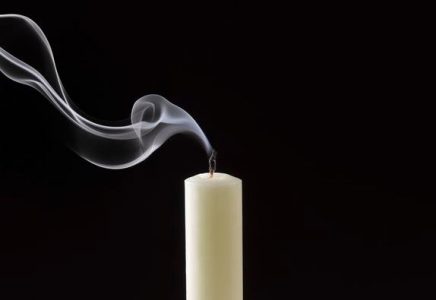
As painful as any death is, there is a much greater sense of tragedy when a young child passes away. This article presents classical Torah sources addressing how we should view and deal with this difficult and painful challenge.
The Torah speaks about three different offerings — the animal offering (most expensive), the bird offering (less expensive), and the grain offering (least expensive). Despite the many differences between them, all three are equally described as — “Ishei reiyach nichoach — a fire offering and pleasing aroma” — since G-d commanded them and His will was fulfilled. The final Mishnah in Menachot (13:11) explains that this teaches us about all of the offerings we bring: “Sh’echad hamarbeh v’echad hamamit, u’bilvad she’yechavein adam et da’ato (or libo) la’Shamayim — Whether a lot or whether a little, [the key is] that one direct their mind and their heart towards Heaven.”
The Gemara (Menachot 104b) describes the more expensive korbanot as being offered by an adam (person) (Vayikra 1:2), while the least expensive mincha was offered by a nefesh (soul) (Vayikra 2:1). This teaches us that Hashem accepts the poor person’s simpler offering as if he has offered up his very soul. Rashi (Brachot 17a) explains that the s’char (spiritual benefit) of one who serves Hashem with a small gift is just as great as the s’char of one who serves Him with a large gift, as long as libo la’Shamayim (his heart is towards Heaven) — one’s sincere intent is to serve Hashem to the best of one’s ability.
This principle is really fundamental to all of our avodat Hashem (service of G-d) — in every
aspect of it, the preeminent value is eichut — quality, not kamut — quantity. This is particularly significant when it comes to one who, tragically, passed away young. Whether one was granted many years or few, the essential issue is how one was able to “direct their mind and their heart towards Heaven.” With an elevated kavanah (focus and intention), then even one who was granted less years will still have lived a meaningful life.
Please click here to continue.
_________________________________
Rabbi Asher Resnick serves as a senior lecturer at Aish HaTorah’s Executive Learning Center, and is a senior training lecturer for Aish’s Rabbinical Ordination program. As a close student of Rav Noach Weinberg, zt”l, he developed a special expertise in addressing fundamental issues in Judaism, as well as in bringing classical texts to life. As a bereaved parent, Rabbi Resnick’s extensive writings on loss, suffering and trauma provide a sensitive Jewish perspective on coping with these fundamental life cycle issues. Olami & NLEResources.com is happy to highlight several essays over the coming months featured on his website JewishClarity.com.



















